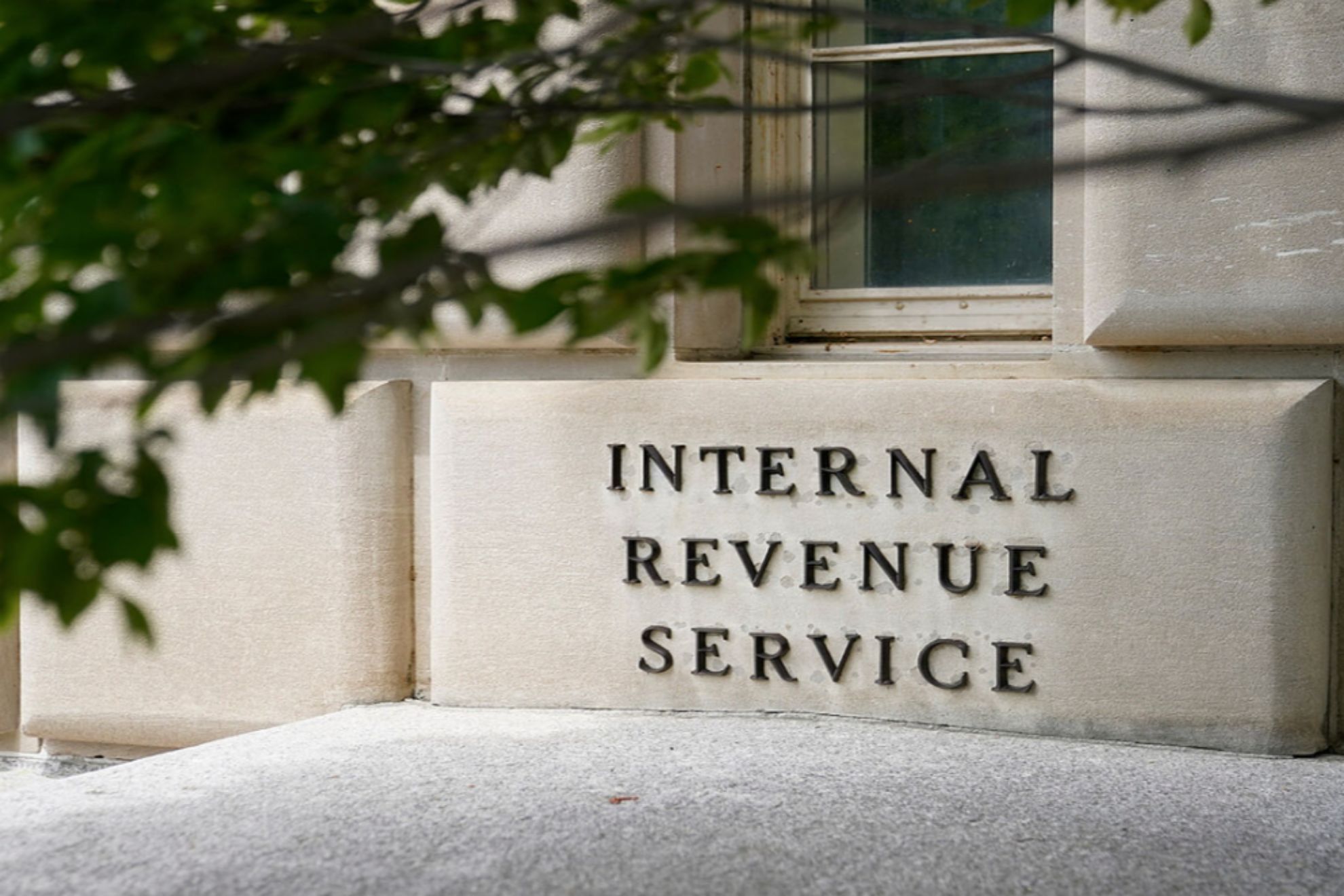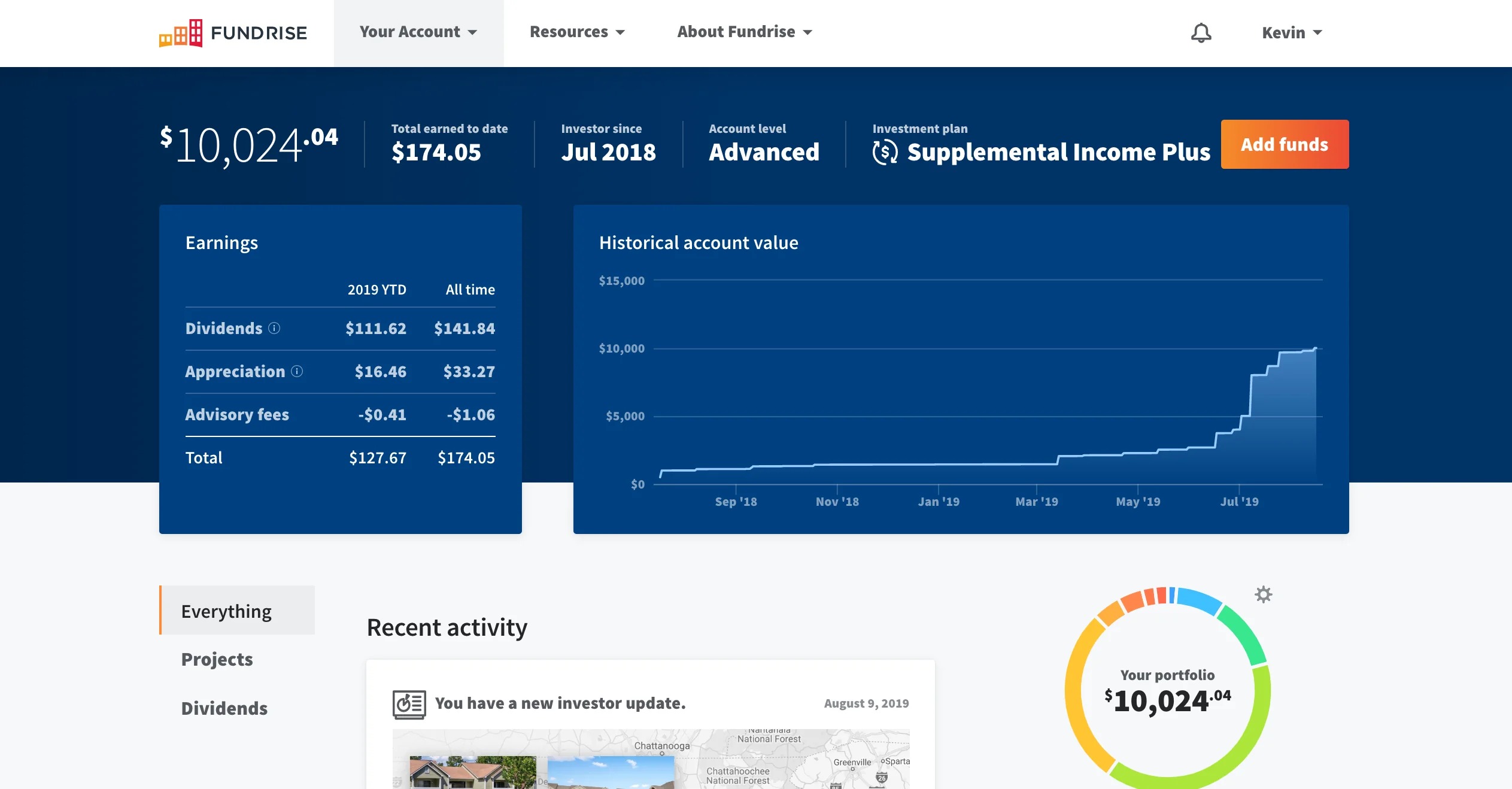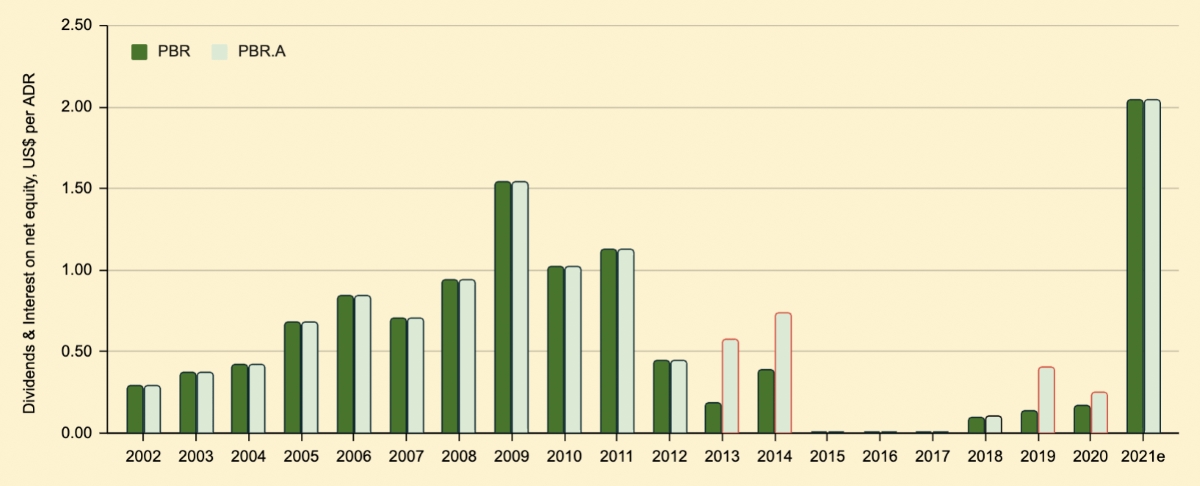

Finance
How Often Does The IRS Seize Property?
Published: November 1, 2023
Discover how often the IRS seizes property and learn more about finance. Stay informed about the potential risks and safeguards to protect your assets.
(Many of the links in this article redirect to a specific reviewed product. Your purchase of these products through affiliate links helps to generate commission for LiveWell, at no extra cost. Learn more)
Table of Contents
- Introduction
- Overview of IRS property seizures
- Legal authority for property seizures
- Reasons for property seizures by the IRS
- Frequency of IRS Property Seizures
- Examples of High-Profile Property Seizures by the IRS
- Implications and Consequences of IRS Property Seizures
- Ways to Prevent Property Seizures by the IRS
- Conclusion
Introduction
When it comes to the Internal Revenue Service (IRS) and its ability to collect unpaid taxes, one tactic that can send shivers down the spine of taxpayers is property seizure. The thought of losing one’s assets to satisfy a tax debt can be a daunting prospect for anyone. But how often does the IRS actually seize property?
In this article, we will explore the frequency and implications of property seizures by the IRS. We will delve into the legal authority that allows the IRS to seize property, the reasons behind these seizures, and the potential consequences for taxpayers. Furthermore, we will discuss some high-profile cases involving property seizures by the IRS, as well as provide tips on how to prevent such actions from taking place.
Whether you’re a business owner or an individual taxpayer, understanding the landscape of IRS property seizures is crucial to ensure compliance with tax obligations and protect your assets.
Let’s dive in and explore the world of the IRS and property seizures.
Overview of IRS property seizures
Property seizures by the IRS are a legal action taken to satisfy a taxpayer’s unpaid tax debt. When a taxpayer fails to pay their tax bill or make arrangements to settle their debt, the IRS has the authority to seize and sell their assets to recover the amount owed.
The IRS can seize various types of property, including real estate, vehicles, bank accounts, business assets, and even personal belongings. The seized property is then sold through public auctions or private sales, with the proceeds used to pay off the tax debt. In some cases, the IRS may negotiate with the taxpayer to reach a settlement or set up a payment plan to avoid the seizure of assets.
Before the IRS can seize property, it must follow a specific process. First, the IRS must assess the tax debt, send a Notice and Demand for Payment to the taxpayer, and provide them with an opportunity to respond or request a payment arrangement. If the taxpayer fails to comply or communicate with the IRS, the next step is the issuance of a Final Notice of Intent to Levy and a Notice of Your Right to a Hearing. This notice gives the taxpayer 30 days to either pay the debt in full or request a hearing to dispute the tax liability.
If the taxpayer still does not respond or pay the debt after the 30-day period, the IRS can proceed with the seizure of their property. It’s important to note that the IRS is required to provide proper notification and due process before seizing any assets. However, the IRS does have the authority to take immediate action in certain instances, such as cases involving the dissipation of assets or fraudulent activities.
IRS property seizures can have serious financial and emotional ramifications for taxpayers. Losing a home, vehicle, or other valuable assets can disrupt one’s life and cause significant distress. It’s important to be aware of the potential consequences and take proactive steps to avoid property seizures by the IRS.
Legal authority for property seizures
The IRS’s authority to seize property stems from various laws and regulations. The main legal basis for property seizures is outlined in the Internal Revenue Code, specifically in sections 6331 and 6332.
Section 6331 grants the IRS the power to levy upon and seize property to satisfy a taxpayer’s unpaid tax debt. This authority extends to all property and rights to property belonging to the taxpayer, including real estate, vehicles, bank accounts, wages, and other assets. It allows the IRS to take possession of the property and sell it to recover the amount owed.
However, the IRS cannot seize certain types of property that are exempt under the law. These exemptions vary by state and may include necessities such as clothing, furniture, and personal items, as well as limited equity in a primary residence.
In addition to Section 6331, Section 6332 provides rules and regulations regarding the release of seized property. It outlines the procedures for notifying the taxpayer of the seizure, the right to appeal the seizure, and the process for returning the property if the taxpayer fulfills their tax obligations or reaches a settlement with the IRS.
It’s important to note that the IRS must follow specific procedures and guidelines when seizing property to ensure compliance with taxpayer rights. These include providing proper notice of intent to levy, opportunity for a hearing, and adherence to applicable state laws.
In cases where the taxpayer feels that their rights have been violated or that the IRS has acted unlawfully, they have the option to seek legal recourse through the courts. An experienced tax attorney can provide guidance and representation in such situations to protect the taxpayer’s interests and challenge the validity of the property seizure.
Understanding the legal authority behind property seizures by the IRS is essential for taxpayers. By being aware of their rights and the procedures involved, individuals and businesses can navigate the tax collection process more effectively and take proactive steps to prevent or address property seizures.
Reasons for property seizures by the IRS
The IRS resorts to property seizures as a last resort when other collection efforts have failed or when taxpayers refuse to address their outstanding tax debts. There are several reasons why the IRS may initiate a property seizure:
1. Unpaid taxes: The most common reason for property seizures is unpaid taxes. When taxpayers fail to pay their tax obligations, despite multiple attempts by the IRS to collect the debt, the agency may resort to seizing assets to satisfy the outstanding amount.
2. Delinquent tax returns: Failing to file tax returns can trigger enforcement actions by the IRS. If a taxpayer has failed to file returns for multiple years, the IRS may resort to property seizures as a means of enforcing compliance and collecting the unpaid taxes.
3. Failure to respond to IRS notices: Ignoring or not responding to IRS notices is a common mistake made by taxpayers. When taxpayers do not respond to IRS correspondence or attempt to resolve their tax issues, the IRS may escalate collection efforts, including property seizures.
4. Fraudulent activities: The IRS also targets individuals or businesses engaged in fraudulent activities to evade taxes. If the agency suspects fraudulent behavior, it can take swift action to seize assets and investigate further.
5. Repeat non-compliance: Taxpayers who have a history of non-compliance and repeatedly evade tax obligations may be at higher risk of property seizures. The IRS may view these individuals or businesses as persistent offenders and take more aggressive enforcement measures.
It’s important to note that the IRS typically exhausts other collection methods, such as sending multiple notices, placing liens on properties, and garnishing wages, before resorting to property seizures. Seizures are seen as a last resort to compel taxpayers to fulfill their tax obligations.
Property seizures by the IRS can have serious consequences and impact a taxpayer’s financial well-being and reputation. It’s crucial for individuals and businesses to promptly address any tax issues, respond to IRS notices, and seek assistance from tax professionals to avoid reaching a stage where property seizures become a possibility.
Frequency of IRS Property Seizures
The frequency of property seizures by the IRS can vary from year to year and is influenced by several factors, including the overall level of tax non-compliance and the IRS’s enforcement priorities. While there is no exact figure available for the total number of property seizures conducted by the IRS annually, we can gain some insight into the frequency of these actions.
Over the years, property seizures by the IRS have declined. This can be attributed to a combination of factors, including improved communication between the IRS and taxpayers, increased awareness of taxpayer rights, and more emphasis on less invasive collection methods. The IRS generally prefers to avoid property seizures whenever possible and strives to work with taxpayers to establish payment plans or resolve their tax debt through other means.
According to the IRS Data Book, in the fiscal year 2020, the IRS seized approximately 800 properties. While this number may seem significant, it is important to note that it only represents a fraction of the millions of taxpayers who owe outstanding tax debt. The IRS primarily focuses on property seizures in cases where other collection efforts have been unsuccessful or in cases involving significant tax debts and high-risk non-compliance.
It’s also worth mentioning that property seizures by the IRS are not limited to individuals. The agency can also seize assets from businesses, including commercial real estate, vehicles, and equipment, in cases of outstanding tax liabilities.
While the number of property seizures may appear relatively low, it is essential for taxpayers to take their tax obligations seriously and address any outstanding debts promptly. Non-compliance with tax laws can not only risk the seizure of assets but also lead to additional penalties, interest charges, and legal consequences.
It’s also important to note that the IRS has become increasingly focused on using more modern and less invasive methods of tax collection, such as automated levies on wages and bank accounts. These methods provide the IRS with a more efficient means of collecting unpaid taxes while minimizing the need for property seizures.
To ensure compliance and avoid the risk of property seizures, it is recommended that taxpayers promptly file their tax returns, pay any taxes owed in a timely manner, and proactively communicate with the IRS if they are unable to meet their tax obligations. Seeking professional tax advice and exploring available payment options can help individuals and businesses resolve their tax issues and prevent the need for property seizures by the IRS.
Examples of High-Profile Property Seizures by the IRS
Over the years, the IRS has conducted several high-profile property seizures that have garnered media attention. These cases involve individuals or businesses with significant tax debts or suspected tax evasion. While each case is unique, they serve as examples of the IRS’s commitment to enforcing tax compliance through property seizures. Here are a few notable examples:
1. Al Capone: One of the most infamous cases of tax evasion in history involved the notorious mobster Al Capone. In the 1930s, Capone was found guilty of tax evasion and sentenced to prison. As part of the case, the IRS seized Capone’s assets, including properties, luxury cars, and other valuables, to satisfy his tax debt.
2. Willie Nelson: The country music legend faced a significant tax debt in the 1990s. The IRS seized Nelson’s assets, including his real estate holdings and personal belongings, to recover the outstanding taxes. The case drew widespread attention, highlighting the importance of diligent tax compliance, even for well-known celebrities.
3. Larry Ellison: The founder of Oracle Corporation, Larry Ellison, was involved in a high-profile property seizure case in 1991. The IRS seized Ellison’s yacht, the “Rising Sun,” due to tax disputes. The case showcased the IRS’s ability to go after high-profile individuals, regardless of their wealth or status.
4. Toni Braxton: The Grammy-winning singer Toni Braxton faced financial difficulties and tax troubles in the early 2000s. The IRS seized her property, including her luxury cars and personal belongings, to satisfy her substantial tax debts.
5. Swiss bank account holders: The IRS has made significant efforts to crack down on offshore tax evasion. As part of these efforts, the IRS has seized properties and assets of individuals who held undisclosed Swiss bank accounts to evade taxes. These cases demonstrate the IRS’s commitment to pursuing non-compliant taxpayers, even on an international scale.
These high-profile cases illustrate the IRS’s determination in enforcing tax compliance and collecting unpaid taxes, regardless of the individuals’ public standing or wealth. The IRS’s ability to seize assets serves as a powerful tool in encouraging taxpayers to fulfill their tax obligations and promoting overall tax compliance.
It should be noted that property seizures are not limited to celebrities or high-profile individuals. The IRS conducts seizures on a wide range of taxpayers, both individuals and businesses, who fail to address their tax debts or engage in fraudulent activities.
These examples serve as a reminder to all taxpayers of the importance of accurate reporting and timely payment of taxes. By diligently fulfilling tax obligations, individuals and businesses can avoid the potential consequences of property seizures by the IRS.
Implications and Consequences of IRS Property Seizures
Property seizures by the IRS can have significant implications and consequences for taxpayers. Understanding these implications is essential for individuals and businesses to take proactive steps to prevent such actions. Here are some key implications and consequences of IRS property seizures:
1. Loss of assets: The most obvious consequence of IRS property seizures is the loss of valuable assets. Whether it’s a home, a vehicle, or personal belongings, losing these assets can have a profound impact on one’s financial well-being and quality of life. Property seizures can disrupt businesses, force individuals into financial distress, and cause emotional turmoil.
2. Financial repercussions: The proceeds from the sale of seized property are used to pay off the tax debt. However, in cases where the sale does not cover the full debt, the taxpayer remains liable for the remaining balance. This can lead to additional financial burdens, including penalties, interest charges, and potential legal actions to collect the outstanding amount.
3. Damaged credit profile: Property seizures can negatively impact a taxpayer’s credit profile. These actions are typically reported to credit bureaus and can result in a significant drop in credit scores. Impaired credit can make it challenging to secure loans, obtain favorable interest rates, or even find employment, as employers may take credit history into consideration during the hiring process.
4. Reputational damage: High-profile property seizures can damage a taxpayer’s reputation and public image. This can have far-reaching consequences, especially for individuals in positions of influence, public figures, or business owners. Reputation damage can impact personal and professional relationships, business partnerships, and future opportunities.
5. Legal actions: Property seizures can escalate into legal actions if the taxpayer disputes the seizure, alleges wrongful conduct by the IRS, or desires to reclaim the seized assets. These legal battles can be time-consuming, costly, and emotionally draining for individuals and businesses. Seeking legal representation and navigating the legal process can be complex and challenging.
6. Psychological and emotional impact: Beyond the financial and legal consequences, property seizures can also take a toll on a taxpayer’s mental and emotional well-being. Losing one’s assets and facing the challenges and uncertainties associated with the seizure process can lead to stress, anxiety, and depression.
It is important for taxpayers to take the necessary steps to prevent property seizures by the IRS. This includes timely filing and payment of taxes, communication with the IRS to address outstanding debts, and seeking assistance from tax professionals if facing financial difficulties. Proactive measures can help individuals and businesses avoid the severe implications and consequences of property seizures.
Ways to Prevent Property Seizures by the IRS
While facing the possibility of property seizures by the IRS can be daunting, there are proactive steps individuals and businesses can take to prevent such actions. Here are some effective ways to avoid property seizures:
1. File and pay taxes on time: Ensuring timely filing and payment of taxes is crucial. Stay organized and keep track of tax deadlines to avoid penalties and interest charges. If you are unable to pay the full amount, consider setting up a payment plan with the IRS to demonstrate your commitment to fulfilling your tax obligations.
2. Respond to IRS notices: Take IRS notices seriously and respond promptly. Ignoring or failing to respond to these notices can escalate collection efforts, including property seizures. If you need more time or have legitimate concerns, communicate with the IRS and seek professional advice to address any issues.
3. Seek professional tax guidance: Consulting with a qualified tax professional can provide valuable assistance in managing your tax affairs and ensuring compliance. A tax professional can help you navigate complex tax laws, identify deductions and credits, and develop strategies to minimize your tax liabilities.
4. Explore available tax relief options: In cases where paying off the entire tax debt is not immediately feasible, consider exploring available tax relief options. These may include installment agreements, offers in compromise, or currently non-collectible status. These options can provide temporary relief and prevent property seizures while you work towards resolving your tax issues.
5. Maintain accurate records: Keep thorough and accurate financial records, including tax returns, bank statements, receipts, and invoices. This will help you substantiate your income, deductions, and any claims made on your tax returns. Accurate records can help you respond to IRS inquiries and minimize the risk of audit or tax disputes.
6. Stay informed about tax laws: Tax laws and regulations are subject to change. Stay updated on any changes that may affect your tax obligations and responsibilities. This includes understanding deductions, credits, and any reporting requirements specific to your situation or industry.
7. Consider professional tax representation: In situations where you are facing significant tax debts or complex tax issues, it may be beneficial to seek professional representation from a tax attorney or enrolled agent. These professionals have expertise in dealing with the IRS, negotiating settlements, and protecting your rights during the collection process.
By taking these proactive measures, individuals and businesses can reduce the risk of property seizures and navigate their tax obligations more effectively. Being proactive, informed, and diligent in managing tax affairs can help maintain financial stability, protect assets, and avoid the severe consequences associated with property seizures by the IRS.
Conclusion
Property seizures by the IRS are a powerful tool used to enforce tax compliance and collect unpaid tax debts. While the frequency of property seizures may vary, the potential consequences can have a significant impact on individuals and businesses alike.
Understanding the legal authority for property seizures, the reasons behind them, and the implications they carry is crucial for taxpayers. By staying informed, taking proactive steps, and seeking professional advice when necessary, taxpayers can reduce the risk of facing property seizures and the related financial and emotional hardships.
Taking timely action, such as filing and paying taxes on time, responding to IRS notices, and exploring available tax relief options, can help individuals and businesses stay compliant and avoid escalating collection efforts. Maintaining accurate records, staying informed about tax laws, and seeking professional representation are also effective ways to navigate the complexities of the tax system and minimize the risk of property seizures.
The IRS, on its part, emphasizes alternative collection methods and aims to work with taxpayers to establish payment plans and settle tax debts. Property seizures are typically a last resort, used when all other efforts to collect taxes fail or when individuals engage in fraudulent activities.
Remember, compliance with tax laws and obligations is not only a legal requirement, but also a way to protect your financial well-being and reputation. By staying proactive and informed, you can avoid the detrimental consequences of property seizures and maintain a strong financial standing.
If you find yourself facing tax difficulties or receiving notifications from the IRS, consult with a qualified tax professional who can provide guidance, ensure compliance, and help you navigate the challenges you may encounter. With proper attention and responsible tax management, you can reduce the likelihood of property seizures and maintain your financial security.














